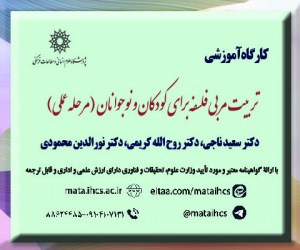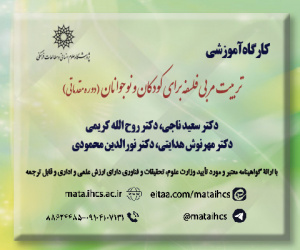اثر بخشی آموزش یوگا بر پرخاشگری دانش آموزان مبتلا به اختلال کاستی توجه/فزون کنشی (مقاله علمی وزارت علوم)
درجه علمی: نشریه علمی (وزارت علوم)
آرشیو
چکیده
هدف: هدف پژوهش تعیین اث ربخشی آموزش یوگا بر پرخاشگری دانش آموزان مبتلا به اختلال کاستی توجه/ فزون کنشی بود. روش: روش پژوهش از نوع نیمه تجربی، پیش آزمون-پس آزمون و پیگیری دو ماهه با گروه کنترل بود. جامعه آماری 60 دانش آموز پسر 7 الی 12 سال شهر زاهدان که در سال تحصیلی ۹۸-۹۷ به مراکز مشاوره ارجاع داده شده بودند و با استفاده از پرسشنامه علائم مرضی کودکان گادو و اسپرافکین، 1994؛ غربالگری شدند. 40 دانش آموز دارای اختلال کاستی توجه/ فزون کنشی که هم زمان نمره پرخاشگری بالایی داشتند پس از بررسی معیارهای ورود به مطالعه شناسایی شدند و با روش نمونه گیری هدفمند انتخاب و به صورت تصادفی در دو گروه آزمایش (20 دانش آموز) و گروه کنترل (20 دانش آموز) جایگزین شدند. ابزار پژوهش پرسشنامه پرخاشگری باس و پری (1992) و نیز برنامه آموزش یوگا به مدت 16 جلسه 45 دقیقه ای در 8 هفته به گروه آزمایش آموزش داده شد. داده ها با استفاده از تحلیل واریانس مختلط با اندازه گیری مکرر تحلیل شدند. یافته ها: نتایج حاکی از تأثیر آموزش یوگا بر پرخاشگری کلی (74/21F=، 001/0P=)، پرخاشگری بدنی (70/13F=، 001/0P=)، پرخاشگری کلامی (41/10F=، 001/0P=)، خشم (86/7F=، 008/0P=) و خصومت (43/5F=، 026/0P=) در مرحله پس آزمون و پایداری این تأثیر در مرحله پیگیری بود. نتیجه گیری: نتایج حاکی از تأثیر آموزش یوگا بر کاهش پرخاشگری در مبتلایان به اختلال کاستی توجه/فزون کنشی بود. در نتیجه؛ برنامه ریزی برای استفاده از آموزش یوگا در کودکان ضروری و درمانگران می توانند از آموزش یوگا جهت کاهش پرخاشگری در کودکان استفاده کنند.The Effectiveness of Yoga Education on the Aggression of Students with Attention Deficit / Hyperactivity Disorder
Aim: This study aimed to determine the effectiveness of Yoga training on the aggression of students with attention deficit/hyperactivity disorder (ADHD). Method: The research method employed a semi-experimental design with a pre-test/post-test and a two-month follow-up for the control groups. The statistical population included 60 male students aged 7-12 years in Zahedan, who were referred to Counseling Centers during the 2018-2019 academic years. The participants were screened using the Children Symptom Inventory questionnaire by Gado and Sprafkin (1994). Forty students with ADHD and high levels of aggression were selected through purposive sampling and randomly assigned to two experimental groups (20 students) and a control group (20 students). The Bass & Perry Aggression Questionnaire (1992) was utilized, and the experimental group received a Yoga Training Program for 16 sessions of 45 minutes over 8 weeks. Data were analyzed using mixed variance analysis with repeated measurements. Results: The results indicated that Yoga training had a significant effect on reducing general aggression, physical aggression, verbal aggression, anger, and hostility at the posttest stage (all with p < 0.05). Furthermore, this reduction in aggression was sustained at the two-month follow-up. Conclusion: The findings suggest that Yoga education is effective in reducing aggression in students with attention deficit/hyperactivity disorder. Therefore, implementing Yoga programs for children with ADHD may be essential, and therapists could consider incorporating Yoga as an intervention to help reduce aggression in this population.



